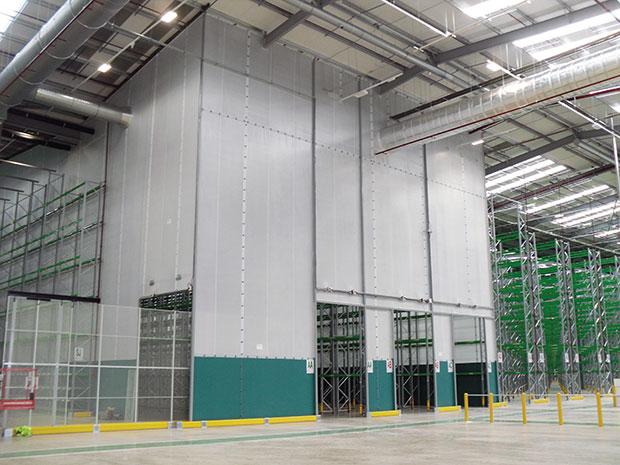The need for temperature controlled environments is common in warehousing, especially within those storing food and pharmaceutical products which are often sensitive to changes in temperature.
 Many businesses find they need to make changes to their existing set up due to an increase in demand, either temporarily due to seasonal changes, or permanently which sees them adjusting how they operate.
Many businesses find they need to make changes to their existing set up due to an increase in demand, either temporarily due to seasonal changes, or permanently which sees them adjusting how they operate.
Introducing new products or services to the business is also a common reason for needing to maximise existing space and store products at differing temperatures. It is also not uncommon now for businesses to use third party logistics, and for the warehouse facilities to be housing products for multiple clients, which also may have different storage temperature requirements.
How can I maximise existing space?
Creating a temperature controlled area within an existing space is often preferable for a number of reasons. Maximising existing space is more cost-effective than renting another warehouse or storage facility, which would be an additional expense. Extra staff may need to be employed too. It may also not be operationally smart to separate functions into two different buildings. More often than not delivering dual functions under the same roof is the desirable option as it’s much more efficient.
Additionally, creating a tightly-sealed temperature controlled enclosure means that only that particular area needs to be either ambient, air conditioned, refrigerated or cold/frozen, rather than the entire warehouse or building; saving on energy usage to reduce both the environmental impact and cost to the business.
Use a semi-permanent fabric partition wall
Flexiwall, the adaptable reinforced fabric partition wall from Westgate is an ideal accompaniment to your temperature controlled warehouse setup. Not only is the wall fitted precisely to the building’s profile (no matter how tall the building), the panels which make up Flexiwall are joined with a unique v-overlap method and can be manufactured from materials with thermal properties, enabling adjacent areas to operate at different temperatures. The panels are also non-conductive, which means minimum condensation build up.
Flexiwall is designed and installed in individual light-weight fire rated material panels that are robust enough to form a permanent partition, but flexible enough to be easily reconfigured, relocated or removed as the needs of the business change.
The wall offers clean and quick installation too, and can install in tight spaces, between racking etc. to make the most of usable space.
Westgate customers have created temperature controlled environments with Flexiwall for multiple reasons; to control temperature and tainting between storage of differing food products. Others have used Flexiwall to enable them to operate part of their existing warehouse at a colder temperature or required a new area within their warehouse where dust and temperature levels could be controlled. Whatever your temperature control requirements, get in touch with Westgate to discuss how Flexiwall can be a great addition to your warehouse facility.




Comments are closed.